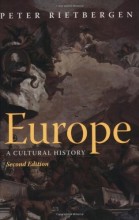Europe's revolutions: freedom and consumption for all? - Between the Alps and the Mediterrannean, between the Estruscan and the Greek worlds: the expansion of the early Romans
14 important questions on Europe's revolutions: freedom and consumption for all? - Between the Alps and the Mediterrannean, between the Estruscan and the Greek worlds: the expansion of the early Romans
There are now called Latins. Where did they came from and did they speak?
What was the result of the wealth of the Estruscans?
How did the legendary 'seven hills' served?
- Higher grades + faster learning
- Never study anything twice
- 100% sure, 100% understanding
What is the Senate and who were the people that were a member of the Senate?
Where was the power of the patricians (aristocrats) based on?
How was the remaining population of free citizens known?
When did Rome became an oligarchic republic and who ruled it?
How did the powerful nobles (administrators) continued their oligarchic government?
What was the use of expansionist politics and creating foreign enemies?
What resulted in a conflict with the rich and powerful trading city of Carthage and who won?
What was partly a result of the esteem in which the Roman elite held Greek culture?
What was the condition for the local Greek elites if they wanted to keep their power?
Name two reasons for the mushrooming population of Rome at a spectacular rate.
What had put an enormous financial burden upon the state, which prompted more wars to increase the number of people who could be forced to make financial contributions to the empire in 58 BC?
The question on the page originate from the summary of the following study material:
- A unique study and practice tool
- Never study anything twice again
- Get the grades you hope for
- 100% sure, 100% understanding






















![English vocabulary in use : advanced ; [100 units of vocabulary reference and practice self-study and classroom use] Book cover image](https://app.studysmart.ai/uploads_prod_data/source/ANYx220/da0fc0aec8eb9003796d685a2248d940188d4cba.jpeg)








